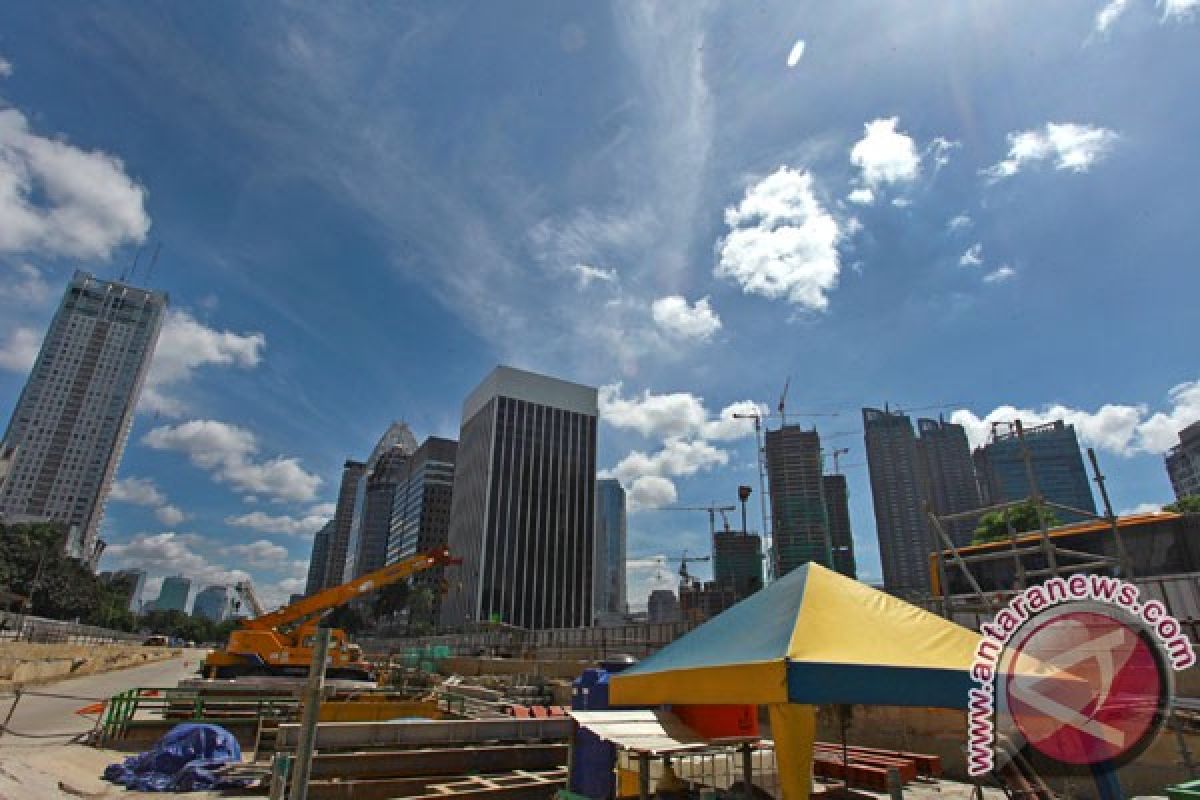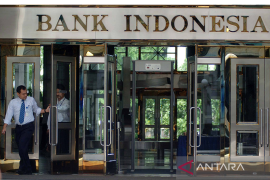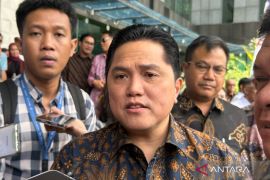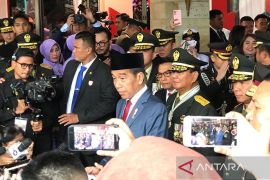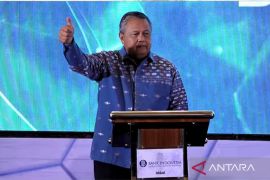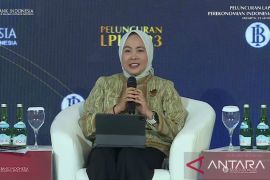The pressure is still heavy, but we believe there has been an anti climax ..."Jakarta (ANTARA News) - The Indonesian economy is expected to perform better this year than it did last year after the government issued a series of economic policy packages.
Since September last year, the government has issued at least seven economic policy packages aimed at strengthening the national economy amid a global economic slowdown.
By deregulating an assortment of economic policies, the government intends to attract more investment to support the economic growth by scrapping a number of rules seen as bottlenecks in the way of investment, offering a plenty of tax breaks, and cutting the red tape in the investment sector.
The deregulation of economic policies also simplifies issuance of permits in the forestry sector to allow more investment from miners, geothermal investors and forestry firms and offers incentives in the form of more attractive rates to exporters depositing their foreign exchange earnings in local banks.
In addition, the deregulation of economic policies also offers companies the issuance of a license within three-hours of application if they wish to operate in industrial parks with a total investment of more than Rp100 billion or employ a minimum of 1,000 workers.
Following deregulated economic policies, the minimum wages are now calculated by using each provinces inflation rate and economic growth, thereby enabling businesses to better estimate their labor costs which are part of production costs.
The series of economic policy packages are expected to attract more investment and create more jobs, which will eventually boost the peoples purchasing power and increase domestic consumption, one of the engines of the countrys economic growth.
Many parties including businesspeople and bankers believe the economic policy packages will begin showing results in 2016.
The World Bank has predicted that the Indonesian economy will expand by 5.3 percent this year, higher than the economic growth forecast of 4.7 percent for last year.
World Bank chief economist for Indonesia Ndiame Diop was quoted by Bisnis.com as saying last year that the economic policy packages will begin to have a positive impact on the public this year.
He predicted that government spending will increase to 3.2 percent this year from last years forecast of 2.1 percent, while capital expenditures will go up to 5 percent this year from the 2015 projection of 3.7 percent.
Indonesias exports are expected to grow by 4.7 percent and imports to increase by 3.6 percent this year, along with the expected recovery of global trade.
The expected robust economy of China, one of Indonesias main trade partners, is predicted to boost demand for Indonesian commodities.
Meanwhile, the Association of Indonesian Businessmen (Apindo) has expressed optimism that the economic growth this year will be better than that of last year despite global economic pressure.
"The pressure is still heavy, but we believe there has been an anti climax when we look at the macro development and the optimism of the World Bank which has predicted the global economic growth to increase to 3.6 percent from 3.2 percent," Apindo Chairman Hariyadi Sukamdani said in December last year.
He noted that the Indonesian economy grew at a slow pace last year as infrastructure projects did not run optimally, while the government has committed itself to boosting infrastructure projects starting early this year. The government-set economic growth target of 5.2 percent for this year is quite realistic, he said.
The Asian Development Bank (ADB), in the supplement to its year-end report Outlook Update issued early December last year, has also predicted that the condition of the Indonesian economy will be better this year, with economic growth projected at 5.3 percent although it was revised down slightly due to the suspended recovery of the export sector.
However, Bank Indonesia Governor Agus Martowardojo noted that four challenges will lie ahead to boost the economy. First of these will be the Chinese economic slowdown; second, downward trend of the global commodity prices; third, uncertainty about the Federal Reserves policy; and fourth challenge will be the increasing capital outflow.
The central bank said the economy will still be difficult to grow and that it has adopted a consistent and prudential monetary policy to keep the inflation and current account deficit in check this year. The measure is also aimed at maintaining the rupiahs stable exchange rate as per the economic fundamentals.
Despite the challenges, Bank Indonesia noted that four domestic strengths will help economic growth, including the economic policy packages which support investment and domestic industry and discipline in managing macro economy.
The Institute for Development of Economics and Finance (Indef) has predicted the economy will grow by 5 percent, slower than the governments target of 5.3 percent for this year.
Indef director Enny Sri Hartati told a national seminar on 2016 Indonesian economic projection in November last year that a wide range of problems will still hinder the economic growth this year.
The problems include Chinese economic slowdown, uncertainty about the Fed fund rate, slow household consumption and declining exports.
To spur the economic growth and take it beyond 5 percent, she suggested that the government should improve the peoples purchasing power and encourage investment.
(T.S012/INE/KR-BSR/H-YH)
Reporter: Suharto
Editor: Priyambodo RH
Copyright © ANTARA 2016
